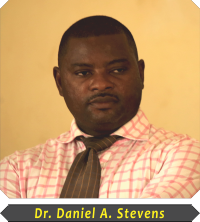24 – 28 August 2015
What happens in an higher educational institutional setting when you are suddenly faced with a deadly epidemic such as Ebola that turns everything up side down? In this one week seminar Dr. Daniel Stevens from the University of Sierra Leone will discuss Alternative Learning Modes (ALM) and give some insights into the measures needed to be taken during the Ebola outbreak in Sierra Leone. This seminar will begin on Monday 24 August with an online live session at 12:30 pm (South African time – GMT+2) followed by asynchronous discussions for the rest of the week.
Synopsis: Due to the Ebola epidemic in Sierra Leone, the University of Sierra Leone decides to engage its students on some alternative learning mode. These include uploading lecture notes on the website, burning of lecture notes on CDs/DVDs, provision of hard copies to students, radio programs etc. The ICT directorate therefore created official email addresses for all its students at the university. These students includes; all students from the Fourah Bay College, College of Medicines and Allied Health Sciences and all students from the Institute of Public Administration and Management. The directorate also created official email addresses for all the academic and administrative staffs of the university. Also, mailing lists were created for all the programs and levels in the university to ensure that lecturers can then develop their learning materials and then send these materials as attachment to their respective students. Within the different mailing list, all the students who are registered for a particular module would have their respective email addresses that were created for them. By so doing all the students of the University of Sierra Leone were engaged during the period of the Ebola epidemic as this epidemic prevented them from attending lectures or any other form of learning for more than eight months. The University of Sierra Leone is one of these old universities that have not been using ICT for any purpose whatsoever. There has been no ICT infrastructure in place before the Ebola epidemic hit the country. Looking at the environment and the situation, the only solution to the problem was the use of the Alternative Learning Mode (ALM) in its inception stage. This paper would discuss the different steps taken to accomplish the ALM, the challenges encountered, lesson learns and the way forward for the university
View resources for this seminar on on the seminar landing page
 |
Dr. Daniel Stevens is head of the ICT Directorate at the University of Sierra Leone |


